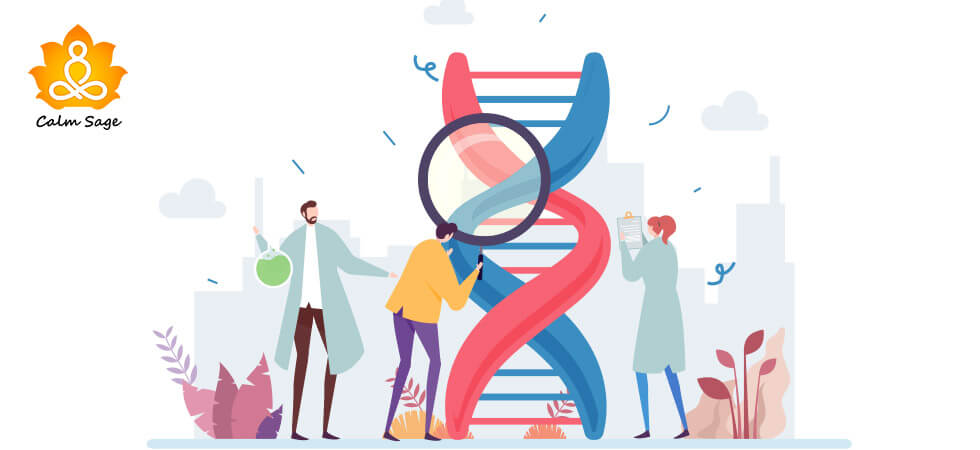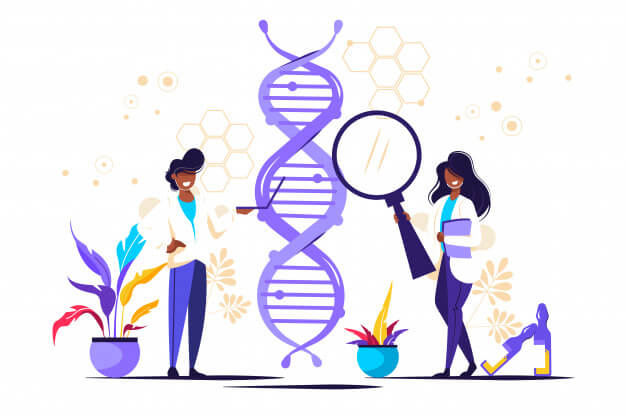Is Depression Genetic or Environmental? Putting an End of the Debate

Depression is one of the most common mental health issues. Studies have found that 1 and 4 individuals are suffering from depression. Therefore it definitely does become important to understand that depression inside out, its signs, causes, treatments, and everything related to it.
It is often suggested that to eradicate a particular issue whether it is related to physical or mental health understanding its cause is important. But, if we talk about depression it can be a little tricky. In today’s write up we are going to address the cause linked with depression and get an answer to the long-running debate is depression genetic or environmental.
Is Depression Genetic Or Environmental?
We will consider both these causes of depression individually and see if genetics is inherited or environmental.
Is Depression A Genetic Disorder?
Genetics definitely has a role to play in causing depression. Having depression running in the family definitely predisposes an individual to this mental condition, but it definitely does not promise it to happen. Let us see what research has to suggest on the question ‘Is depression genetic:
Research has supported that there is a gene that might be responsible for depression. It is found to be prevalent in individuals and their family members who are diagnosed with depression. The chromosome 3p25-26 is by far the most studied one that is found to link with depression.
Apart from this one chromosome, various other studies have proposed certain gene variants being associated with depression and its symptoms.
If a first-degree relative is diagnosed with depression the Nan individual’s chances of being diagnosed by it increase three to five times.
The most famous twin studies have also supported that if one of the twins has depression, the chances for the one to be diagnosed with it just doubles up.
Depending on our genetic structure, there might be certain neurotransmitters that are produced in lower levels thus leading to depressive symptoms.

Is Depression An Environmental Disorder?
There definitely have been numerous studies that support depression is inherited. But, there are two sides to a coin, and depression is no exception. Numerous studies suggest, the surroundings in which an individual grows predisposes him to various mental health issues, depression topping the charts. Here are some key findings or as we can call it, a meta-analysis of the available literature that emphasizes the role of the environment on depression.
Studies in different regions of the world have shown that people coming from homes where conflicts and abuse persist are more likely to go through depression in their life.
Being raised in a neglected atmosphere makes an individual reactive to stressors, which further is linked with a higher risk of depression.
The number of stressors (be it perceived or real) is linked with an individual’s chances to experience depression, positively.
Twin studies have shown that if twins are reared in a nourishing environment the chances of depression developing in them as a part of their gene composition decreases. Clearly making a nurturing environment a winner here.
Experiencing a traumatic event in life is also linked to depression. Even if there is no history of depression, one traumatizing event can lead to the development of its symptoms.

What’s The End Of This Debate?
From the content provided above one thing is clear that no one cause leads to depression instead it is an interplay of both nature (genetics) and nurture (environment). No one of these causes can take an upper hand here. However, certain studies have shown that the genetic makeup of an individual is likely to be responsible for depression for up to 40 percent and environmental factors make up the remaining 60 percent. These figures need to be explored by more research though for it to be a set in stone to present.
My Take On Is Depression Genetic Or Environmental
During my days in clinical practice, we paid attention to the cause of depression while taking mental status examinations of an individual. And trust me in practical and clinical life the fact that genes and environment both have a role to play in depression does exist. Some of our clients did have a clear history of depression or other mental health conditions running in genes. On the other hand, there were clients with no family history of any mental health conditions, but their environment was such that depression boomed in their life. I would comment that depression is an interplay of nature (genes) and nurture (environment), there is no one cause to trace depression.
I would put it in a nutshell by saying that while genes might predispose you to depression, the right environment can alter this condition while the wrong one can amplify it.
A Message from Calm Sage:
No matter whether depression runs in an individual’s family or it is the environment that you live in that is causing depression it is always advised to take help. You may start by reaching out to a friend or someone you love and then seeking professional help as and when required. Depression is curable. All you need is to take help at the right time.
More Power To You…
You May Like These Also:
Things You Should Never Say To Someone With Depression




















